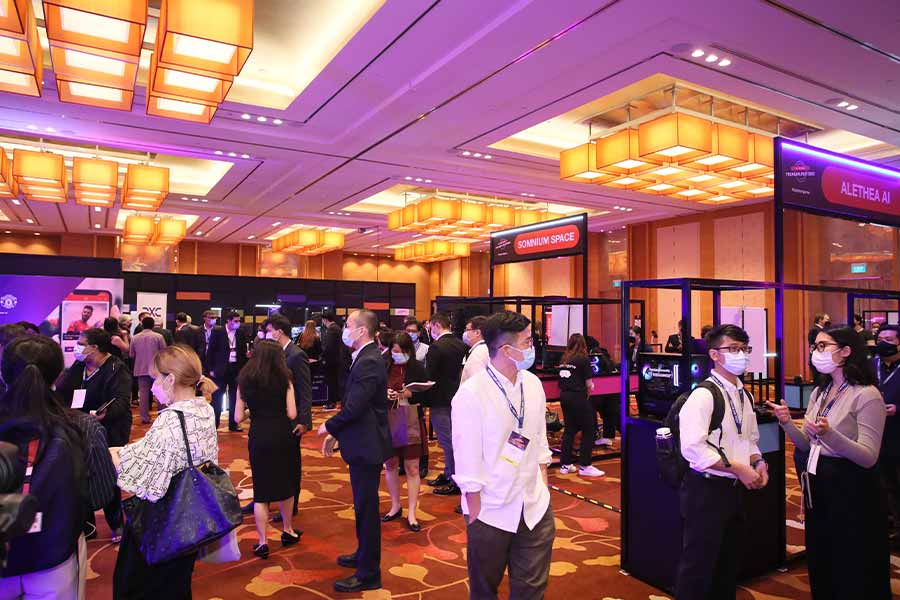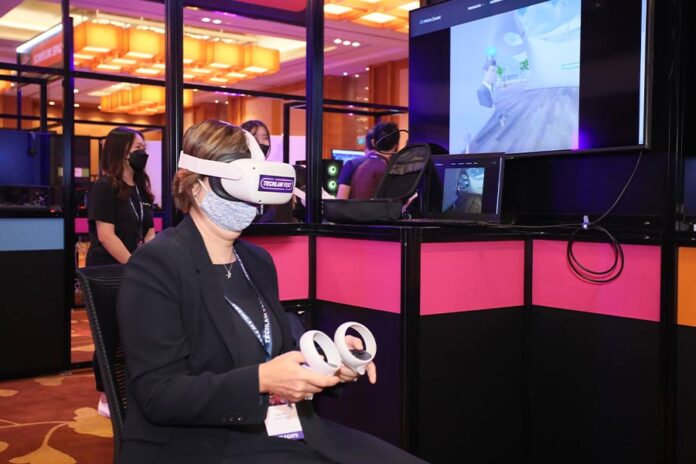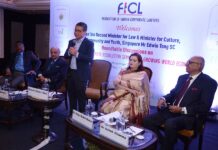After being held online in the past two years, Singapore’s annual TechLaw.Fest returned for its fifth time with a hybrid event, featuring a metaverse experience. Around 3,300 participants from more than 100 countries and at least 60 speakers attended the conference on 20-22 July.

The event combined in-person sessions and a virtual online component, with the signature event of the Singapore Academy of Law (SAL) being held at the iconic Marina Bay Sands hotel. The virtual reality metaverse exhibition was held on the first day and followed by a two-day virtual conference. Asia Business Law Journal is a media sponsor of this most anticipated forum to exchange ideas on legal and tech issues.
Rama Tiwari, chief executive of the SAL, told Asia Business Law Journal that every year, TechLaw.Fest attracts members of the legal and tech communities to deliberate the issues of the day.
“This year was no different, with a timely look at Web 3.0 and next-generation interfaces that use augmented and virtual reality,” said Tiwari. “But this year’s edition had an added draw: it was a chance to see and catch up with fellow members of the profession in person again.”
As all new technologies give rise to novel legal issues, including the next iteration of Web 3.0, Tiwari added, “TechLaw.Fest offers a timely forum to experience, explore, discuss and exchange ideas on how to either mitigate risks or resolve these novel legal issues.”
In his opening speech, Edwin Tong, Singapore’s Minister for Culture, Community and Youth and Second Minister for Law, said that virtual meetings and hearings remain widely used post-pandemic. As Singapore has been and is currently a choice location for international parties for dispute resolution services, a virtual platform could be leveraged to serve such a purpose, including through the metaverse.

“We need to not just keep pace, but perhaps in Singapore, be one step ahead of the curve,” said Tong. “If businesses see a need for an online replica of what Singapore might offer in the physical space for this to be replicated in the metaverse space, we will explore building one.”
Tong believed such an integrated platform will make the whole dispute resolution process more convenient, efficient, and it keeps pace with how the rest of the world is developing. Even if users may prefer and choose to do part of it offline, e.g. hearings, there can always be a hybrid element.
“Of course, the metaverse, and virtual platforms like these bring with them their own set of challenges, and cutting-edge frontier legal issues. For example, questions of jurisdiction used to be straightforward, issues of territoriality, and conflicts of law will be challenged in a borderless virtual world,” Tong said.
“The Singapore government is closely studying the characteristics of the metaverse, and attendant and legal issues that will arise, having an adoption of the metaverse in the legal world.”
Participants experienced the metaverse with the help of virtual reality headsets at a one-day exhibition. The two-day virtual conference followed the exhibition featuring discussions from global thought leaders on the legal implications of moving into the virtual world and other features of Web 3.0 like blockchain and 5G technology.




























